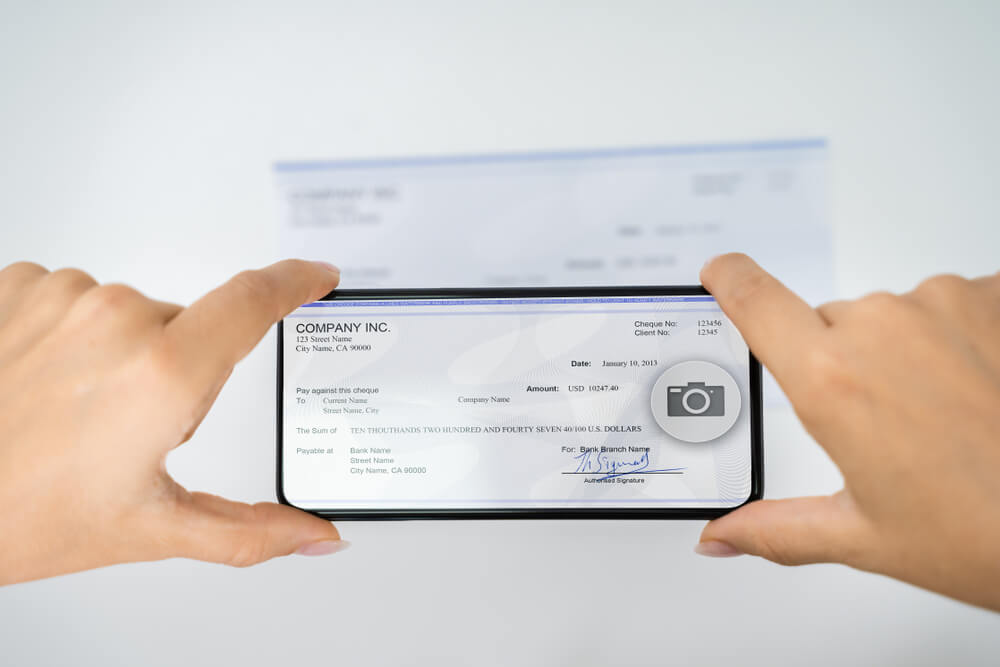Do you have questions about sending payments for your business? Then it’s time to take a closer look at paper check vs direct deposit options. While you have likely heard of both choices, when making a decision for your business, it’s important to really break down how they work before you start the process.
Below, you’ll find answers to some of your most pressing questions: What does it mean to really send payments digitally to payees? What are the advantages and disadvantages of direct deposit? Can a business offer both options?
Direct Deposit or Check: The Basics
There are two main methods a business must decide between for issuing payments. When it comes to deciding between direct deposit vs check, it’s important to first understand what each of these is.
A direct deposit is a payment method used to directly send funds to a payee’s bank account. In the United States, there are two main methods for handling these transactions: automated clearing house (ACH) or electronic funds transfer (EFT). In order for a business to issue a payment electronically, they will need to know the payee’s bank account information, including their account number and routing transit number.
Paper checks have been around longer as an option for businesses to issue payments. The check is a piece of paper that will need to be distributed to payees and can either have the payment information handwritten on the page or professionally printed. The payee will need to go to their financial institution in order to either deposit or cash the check.

What Are the Advantages and Disadvantages of Direct Deposit?
If you are new to this payment method, it’s important to gain a wider understanding of the pros and cons before making a decision about paper check vs direct deposit options.
The Advantages of ACH Transactions
ACH deposits are a convenient option for both payees and businesses. Payees simply need to check their bank account to confirm payment, while businesses can easily issue and track their funds.
These transactions are more secure. With a system like ACH, payments are legally protected and securely handled. Paper checks are easily lost or stolen and sometimes even counterfeited, which creates a lot of problems for both businesses and payees.
ACH transactions are a cost-effective choice for businesses. While there are fees to set up ACH payments, paper checks cost money every time they are issued. With the ACH option, there are also fewer issues needing to be troubleshooted, which saves company resources as well.
Electronic bookkeeping is a smoother process. This saves time for businesses and makes issuing payments easier.
And, ultimately, these deposits make payees happy. When businesses only offer paper checks, many payees will complain as they prefer the ease of having their transactions handled automatically for them.
The Disadvantages of ACH Transactions
You may still have payees who ask for paper checks. This is only a slight disadvantage since you can offer both options. A great payroll company can handle this for you. Because more payees prefer online payments, if you only offer paper checks, you will likely receive more complaints.
Another disadvantage is that if payments aren’t issued on time, there can be problems. If a business needs a payment to go through by a certain time, but the payment isn’t submitted by the deadline, there are fees to expedite the transaction.
There are other regular fees to consider as well. While there are generally fewer fees than required for issuing paper checks, they are still something businesses need to keep in mind. Depending on your bank, you may have transaction fees. There are also the fees to initially set up ACH transactions.
Direct Deposit vs Check: What Are the Pros and Cons of Paper Checks?
Payees may sometimes still prefer paper checks for privacy reasons. For instance, they may not want to give their personal banking account information to a business. This is the main advantage to offering paper checks for payees and why many businesses choose to still offer this option even when they primarily pay with ACH transactions.
One downside to paper checks is that they are easy for payees to lose. When a payee loses their check, that takes more time and resources for the business to reissue it.
Distributing paper checks is also more complicated than distributing payments electronically once a payment system has been properly set up. This can be time-consuming and costly for businesses to manage.
How Is Direct Deposit Better for Payees?
When considering the option of direct deposit, it’s important to not only consider the benefits for your business but for your payees as well.
There are some people who are uncomfortable giving their banking information to a business. Their privacy and security are important to them. These people prefer paper checks.
There are also those who do not have bank accounts. Some people today still handle all of their finances with cash. These are generally the rare exceptions.
Today, people largely prefer to receive payments electronically. This is in large part due to the time savings an ACH transaction offers. The recipient doesn’t need to make sure they pick up their check or find it in the mail. There is no need for them to track whether they have received the piece of paper. They do not have to find the time to go to their bank to either cash or deposit the check.
Instead, they can use their computer or mobile device to check their account and see the payment has arrived. While there may be other benefits for some payees, the time savings offers the most relief for many and is why ACH transactions have become the preferred method of payment.
Direct Deposit or Check: Which Is Better for Businesses?
Businesses benefit greatly from the advantages of direct deposit.
How is direct deposit better? While the pros and cons listed above highlight many of the ways businesses benefit from using direct deposits vs checks, the main benefit for many businesses is the same as it is for payees: ACH transactions are easier.
When considering the ease of this payment method, it isn’t just in the setup. It’s in handling issues as they arise. This payment method requires less troubleshooting, and when it does, it can be handled much faster.
Is a payee unsure about receiving payment? This is easily tracked on the computer.
Distributing payments is handled in one step online.
When you hire a professional payroll service experienced in managing your bookkeeping, your ACH transactions are more secure and headache-free.
Keeping your business finances well organized and trustworthy is essential. ACH transactions have made this more straightforward and removed many of the obstacles businesses used to face when issuing payments.
How Businesses Move Forward With Issuing Payments
Choosing between business payment methods may feel overwhelming. Many business owners find that bookkeeping is an unexpectedly large part of running a successful operation. When one part of your business finances is off, everything else may have to come to a halt until it’s fixed.
To keep your business running smoothly, it’s essential to choose a service you can trust for handling your payments.
At Checkissuing, we use ACH transactions to keep our clients’ business finances safe. Are you ready to see how we work? Contact us today to learn how you can send payments directly to payees swiftly and securely.







